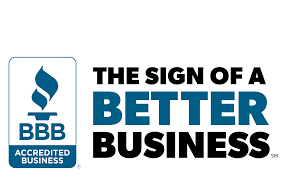When an HOA board is made up of younger residents, it can be easy to forget about the senior members of the community. But, every community member matters, including HOA aging residents. As such, it is important to make the necessary adjustments to accommodate more elderly homeowners.
How to Provide HOA Aging Residents with Aid
A common issue that many HOAs run into is when their communities have been established for a substantial period of time and their residents age. Even though the residents originally purchased their properties when they were in a different phase of their life, the community needs to make an effort to keep up with the current needs of their residents.
Many HOAs struggle to balance the needs of their aging HOA residents combined with the needs of younger residents that may have relocated to the community later on. If your HOA is looking to implement a new strategy to help HOA aging residents, read on.
1. Constantly Analyze State and Local Laws for Disabled HOA Residents
Depending on your location, there is legislation dictating how you should approach protecting the HOA aging residents of your community. That said, these regulations are constantly changing.
It is usually best to look out for changes in the fall. Then, check again to see what is being rolled out in January on a federal, state, and local level. This way, you can make any additional budget allocations for unexpected repairs or enhancements due to the new legal requirements.
Age brings forth a number of disabilities, such as problems with vision and motor skills. These disabilities, while unfortunate, can give rise to legal liability for your HOA. Therefore, it is important to always stay on top of updated regulations to help shield your HOA from legal liability.
If you are unsure about how new legislation will impact your particular HOA, then it may be wise to consult with a local attorney that has expertise in dealing with HOAs in your state. This way, you will be able to make the best possible decision for your HOA.
2. Review Areas of the Community That Can Have Improved Safety
As your community ages, there are areas that will need repairs. If you notice that walkways, ramps, doors, gates, or other areas need repairs, make these repairs as soon as possible.
This is particularly true if a larger percentage of your residents cannot move as much as they could before. If you have more residents using wheelchairs or walkers, uneven pavement may cause them to have serious but avoidable accidents.
3. Ensure Aging Community Members Can Comply with Guidelines
Many communities have strict regulations about landscaping that require residents to perform maintenance on their front or backyards on their own.
If your residents are getting older, it may be wise to consider how to adapt policies such as these that they may not be able to tend to on their own. In these circumstances, some HOAs have negotiated a contract price with one landscaping company that residents with mobility issues can opt into for an additional fee on top of their existing HOA dues.
Make sure to look at the expectations your HOA is placing on its residents regularly. Determine which ones can be modified to simplify your resident’s quality of life while still adhering to the high standards your HOA opts to set for its community across the board.
Thinking proactively on issues such as these enables your HOA to have a higher resident retention rate. In turn, this will have a positive impact on property values within your community and attract additional prospective residents to fill any vacancies that your community may have.
Your HOA should have the goal of having the most occupied units possible in order to maximize the amount of HOA dues that can be collected and then subsequently used to better your community overall.
4. Require Emergency Contacts for Residents
Another popular option for HOAs is to have a list of emergency contacts for all residents regardless of their age. This is a particularly favorable option for communities that have many older residents.
By having an emergency contact list, it can help HOAs communicate necessary information to close relatives of residents should the need arise. Residents may also feel assured that, if something does happen, the HOA can get in touch with their preferred contact. Consider this option carefully if the majority of the residents within your community are older.
5. Host Regular Community Events
One thing your HOA may realize is that many of your older residents can no longer drive or travel as much as they once did. When this occurs, it is an opportunity for your HOA to organize more community events where these residents can establish stronger connections with their neighbors.
Make sure to allocate a certain amount of your HOA budget for events catered to your residents who may be looking for a community closer to home. As a result, your residents will be thrilled to participate and form closer relationships with their neighbors.
6. Communicate with Elderly Residents
Part of taking care of aging residents is maintaining an open line of communication with them. This way, elderly residents can voice out their concerns and feedback with ease. Remember that older residents are not as familiar with technology as younger residents. With this in mind, develop a method of communication that the HOA board and senior residents can both use.
7. Evaluate the Age of Your Community Members Annually
Each year, your HOA should survey the age of each household within your community. The reason for this is that there may be years where old HOA residents sell their properties and younger families move in.
There may also be a year where more elderly residents purchase property to be closer to their family members. By taking an annual survey, your HOA can focus its programming and repairs on the services that will impact the largest percentage of your residents.
Every Community Member Counts
Aging is a natural part of life. Unfortunately, we live in a world that often disregards the more senior members of society. An HOA should not follow this example. In a community, every member is important, HOA aging residents included. By keeping their needs in mind, an HOA can ensure senior residents are well taken care of.
Many HOAs face everyday difficulties ranging from elderly care to pet issues. If your HOA belongs to this group, you will benefit greatly from the services we provide. Don’t hesitate to contact us today.






